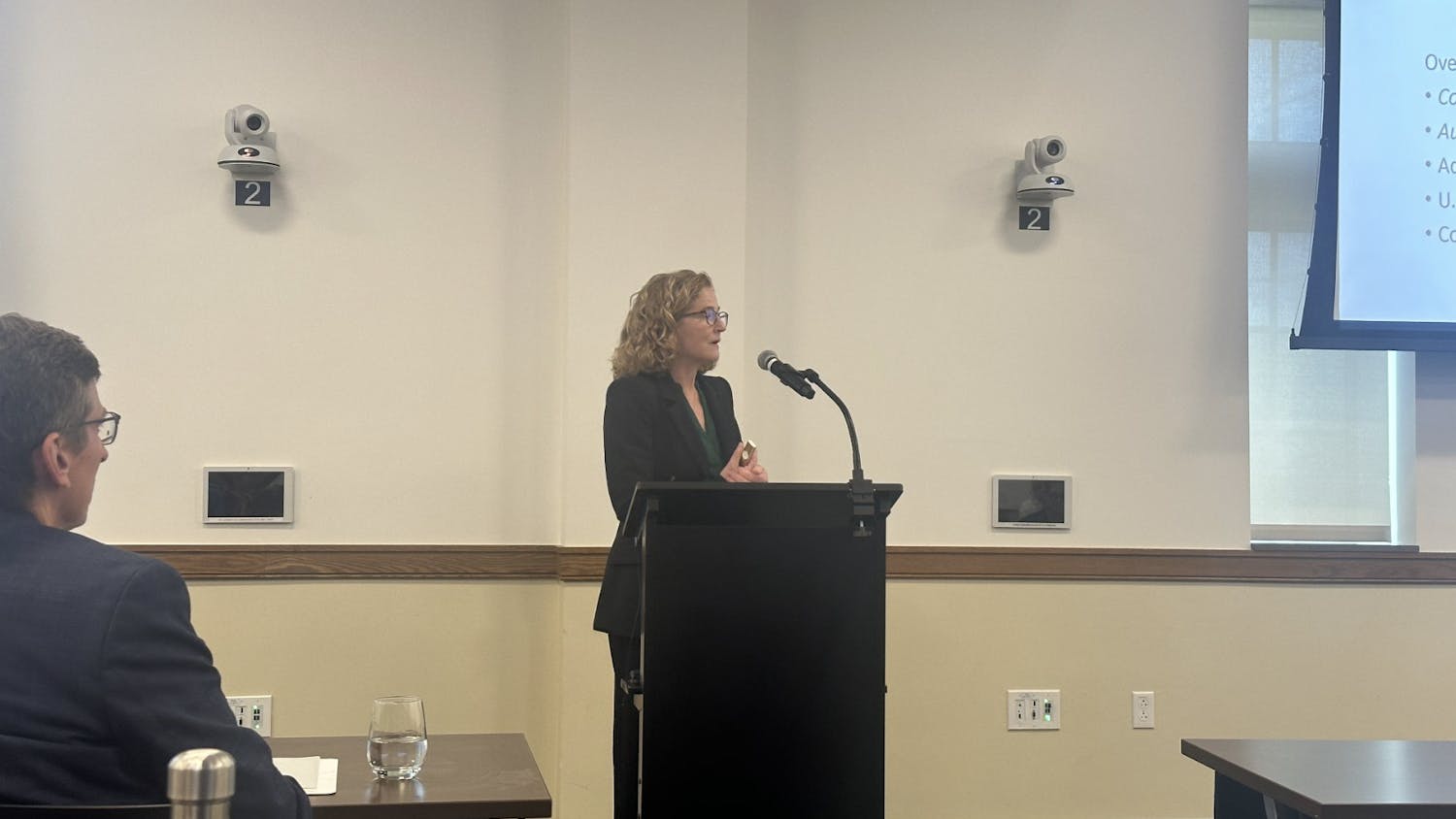The “mother of African women’s theology,” Mercy Amba Oduyoye, served as the honorary speaker of the 33rd annual Madeleva Lecture in the Carroll Auditorium at Saint Mary’s on Thursday evening. In her lecture titled “African Women’s Theologies, Spirituality and Healing,” Oduyoye discussed her work in founding the Circle of Concerned African Women Theologians and their development of spiritual practices of resistance and healing relative to violence against women.
College President Jan Cervelli said elevating the contributions of women in theology has been the primary purpose of the Madeleva Lecture series since its inception.
“The common thread of all the Madeleva lectures for the past 33 years is that women are dedicated to changing the way we understand and respond to the world around us,” she said. “What makes Saint Mary’s mission so distinct is what an enlightening evening like tonight highlights. It highlights a sense of discovery of what it means to embrace our core values of faith and spirituality with learning and community and justice.”
Empowering women to work for justice is Oduyoye’s life work and is central to the mission of Saint Mary’s, not only as a Catholic institution, but as a women’s college as well, Cervelli said.
“Mercy has had great influence on helping women around the world retrieve and share their own stories and in turn, nurturing person-oriented involvement in church and society,” she said. “That key objective is very much in line with Saint Mary’s mission as a Catholic college. We guide and challenge our students here to discover the connections between the mind, the heart and the soul.”
Oduyoye introduced the audience to the Circle of African Women’s Theologians’ work for women’s empowerment in West, East and Southern Africa.
“The women who formed part of the circles were not merely professionally-trained theologians, but also included laywomen who were deeply engaged in religious communities, like my grandmother theologian who sang her theology,” she said. “The women’s circle is also multi-religious. It represents a vision of solidarity and an inward self-critique of destructive cultural and religious practices that conditioned women into self-abnegation. If a woman is not at ease in her own home, how can she thrive in the wider community?”
For decades leading up to the 21st century, Oduyoye said, the world and African culture have changed. However, she said, women are still expected to remain submissive and self-giving in our society.
“Violence such as physical battering, psychological and verbal abuse and the denial of women and conjugal rights are diseases in our community,” she said. “This source of ill-health for women was for long hidden under the cloth of privacy. African women were admonished not to wash their dirty linen in public, so their wounds pestered. It became cancerous, spreading to all aspects of domestic relations and turning homes that should be havens into hell-holes for women.”
Every illness, Oduyoye said, does not only affect one’s physical being, but also one’s spiritual being.
“Healing from ill health can only come if we change our conception of who God is,” she said. “God is not a man, not me, but a God of compassion. It is the right of God’s creation, including humanity, to live what God saw and pronounced good in the present state of creation. However, today we’re living in a world where the women themselves are wounded. And these wounded healers are the ones that the whole community is dependent upon to do the healing.”
Oduyoye highlighted a means to promote this healing through dialogue and discussion.
“When people feel that they are heard, even that can be therapeutic,” she said. “Somebody has to talk about these difficult issues in order for healing to exist. We need to talk about masculinity and what it means to be a man in a community. My hope and the hope of the Circle of Concerned African Women Theologians is that we can ultimately help and heal the many wounds in our communities.”
Read More
Trending









